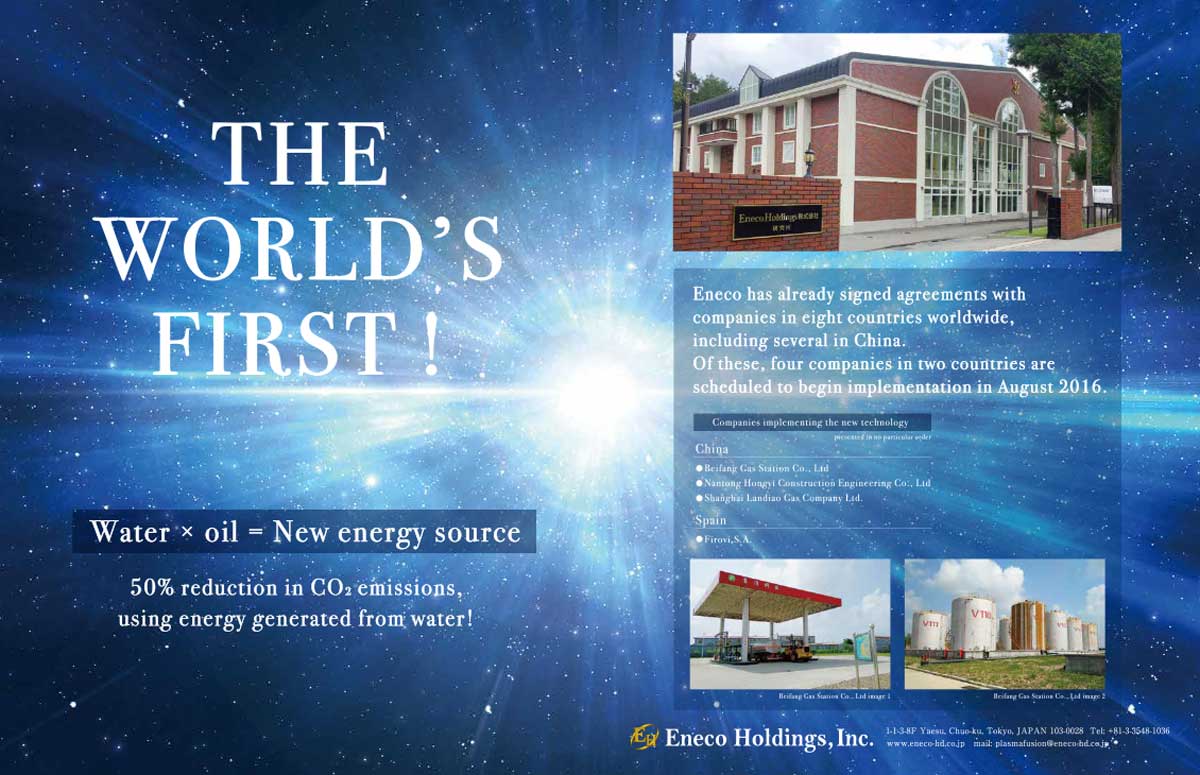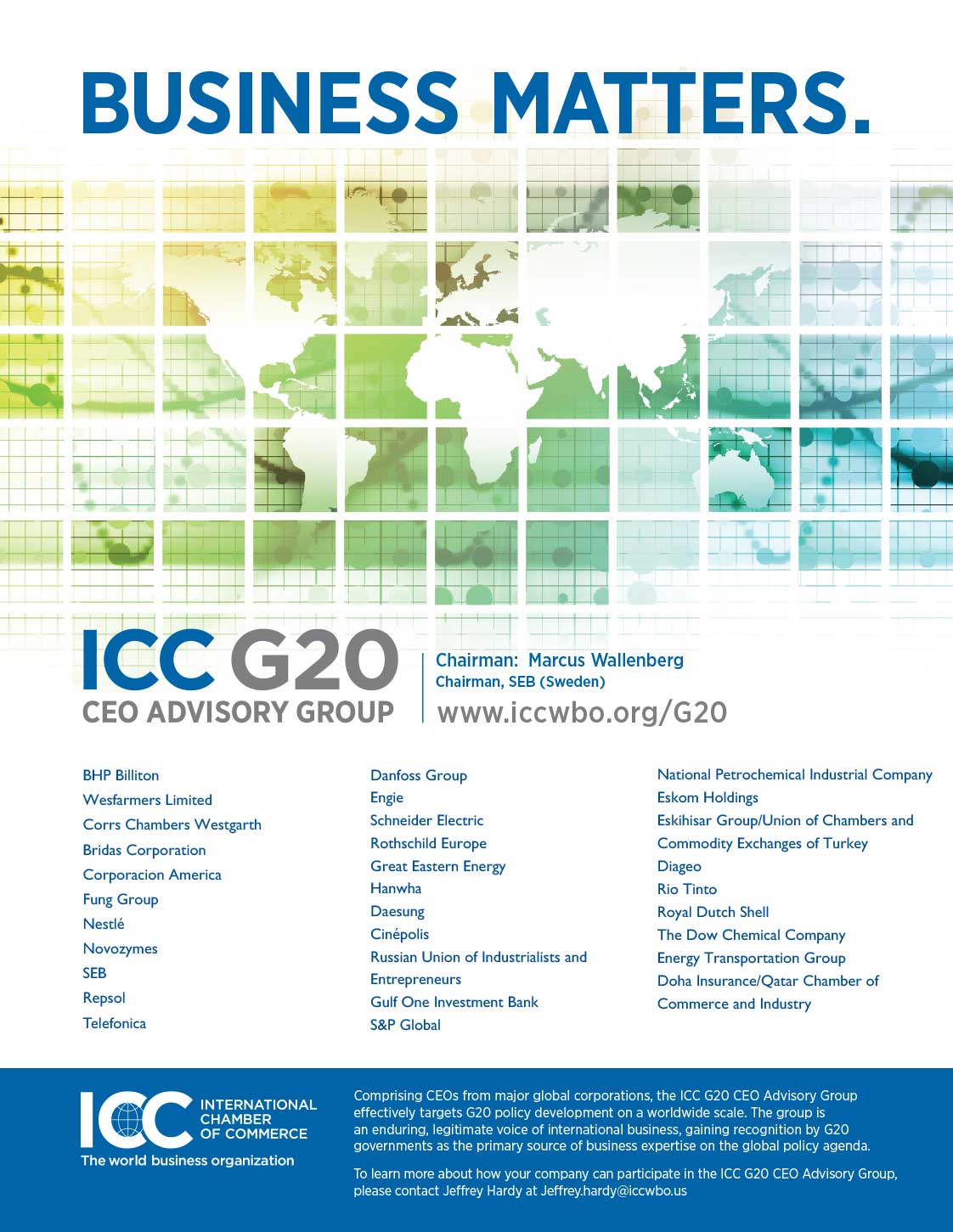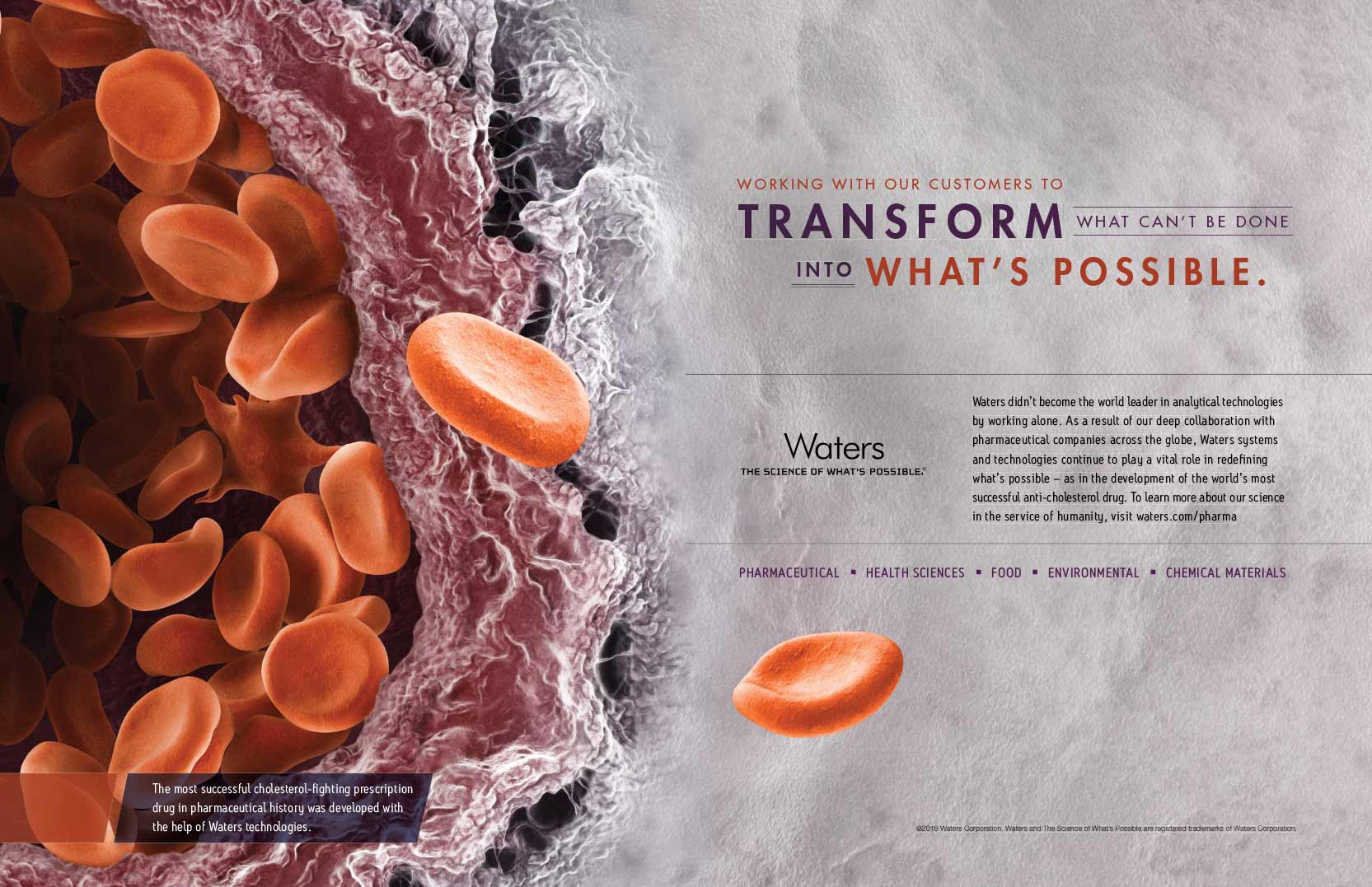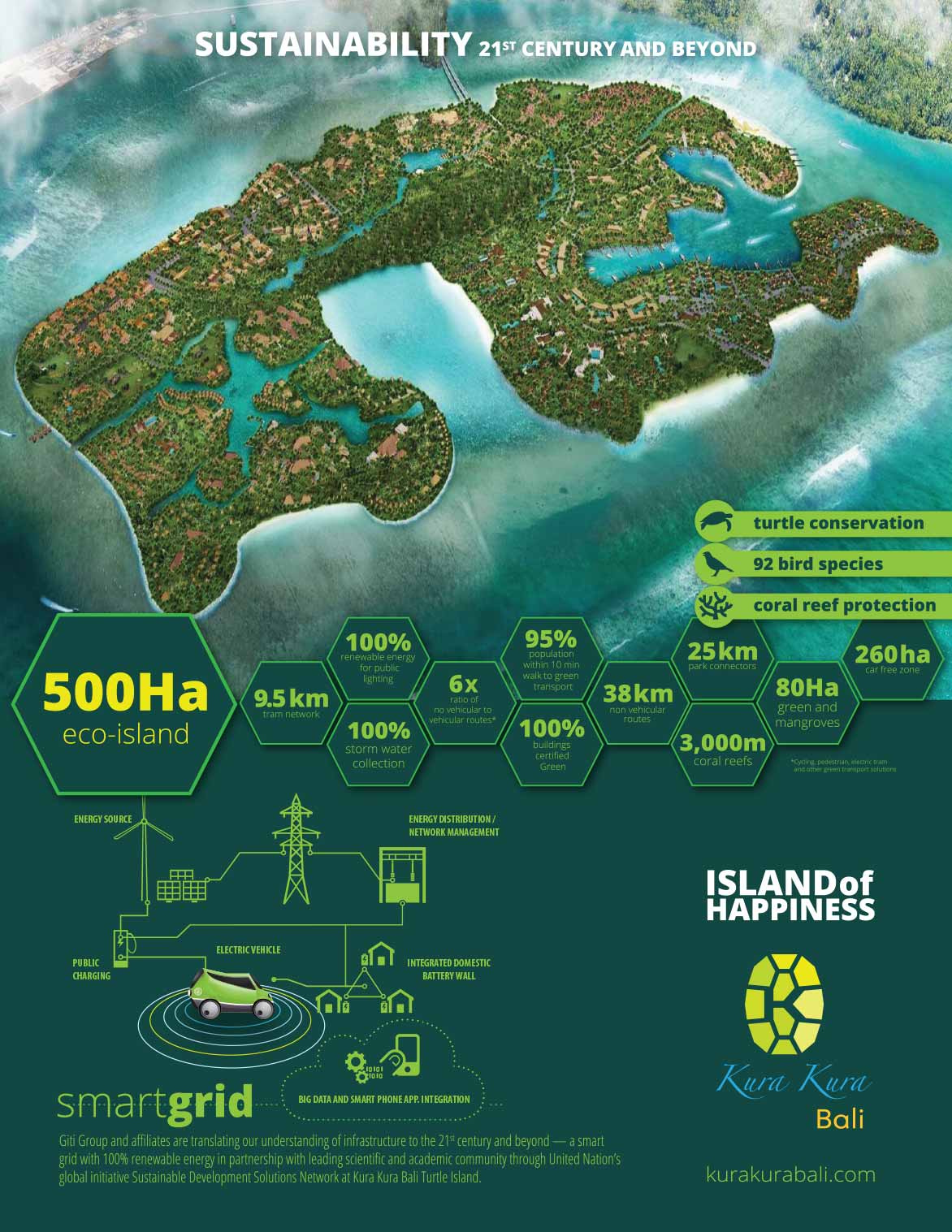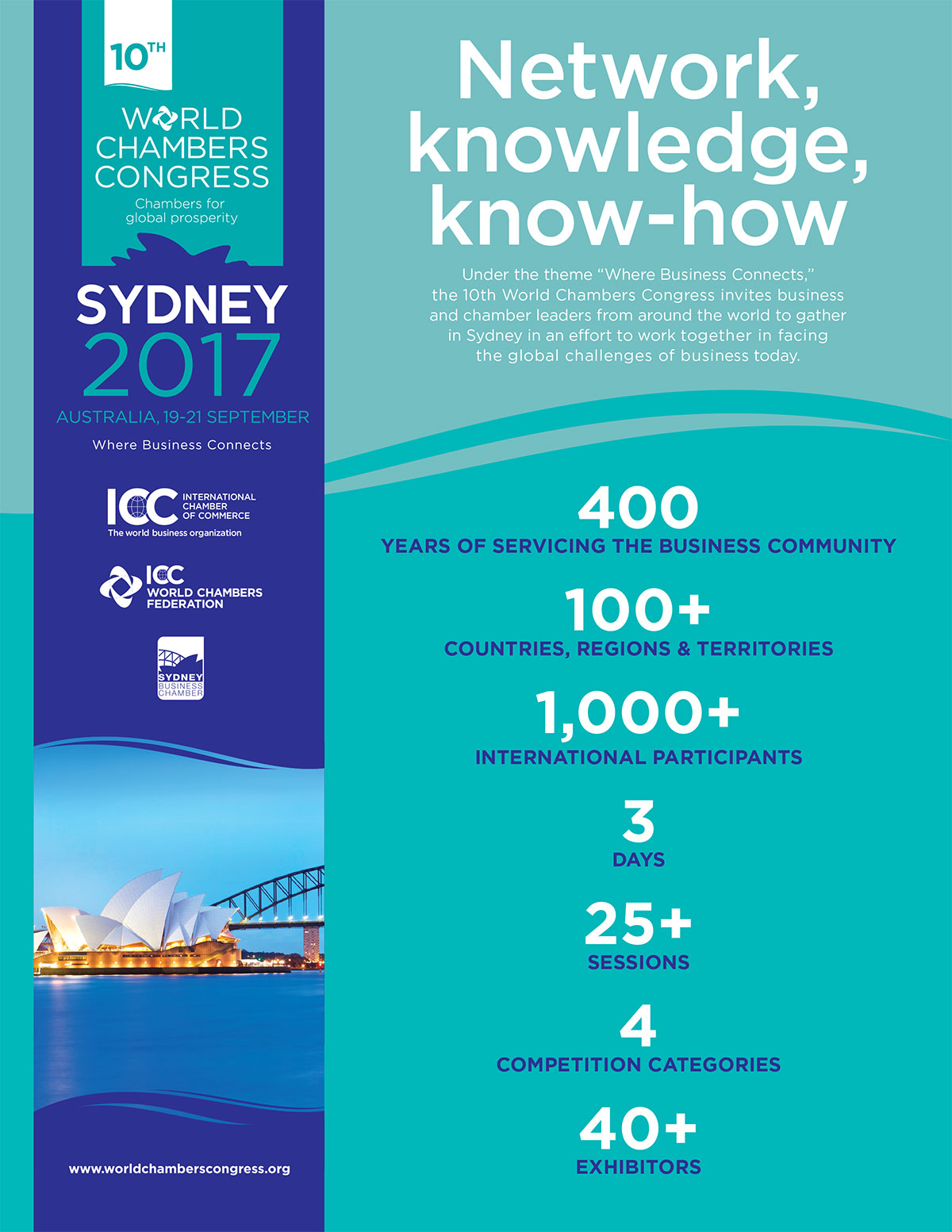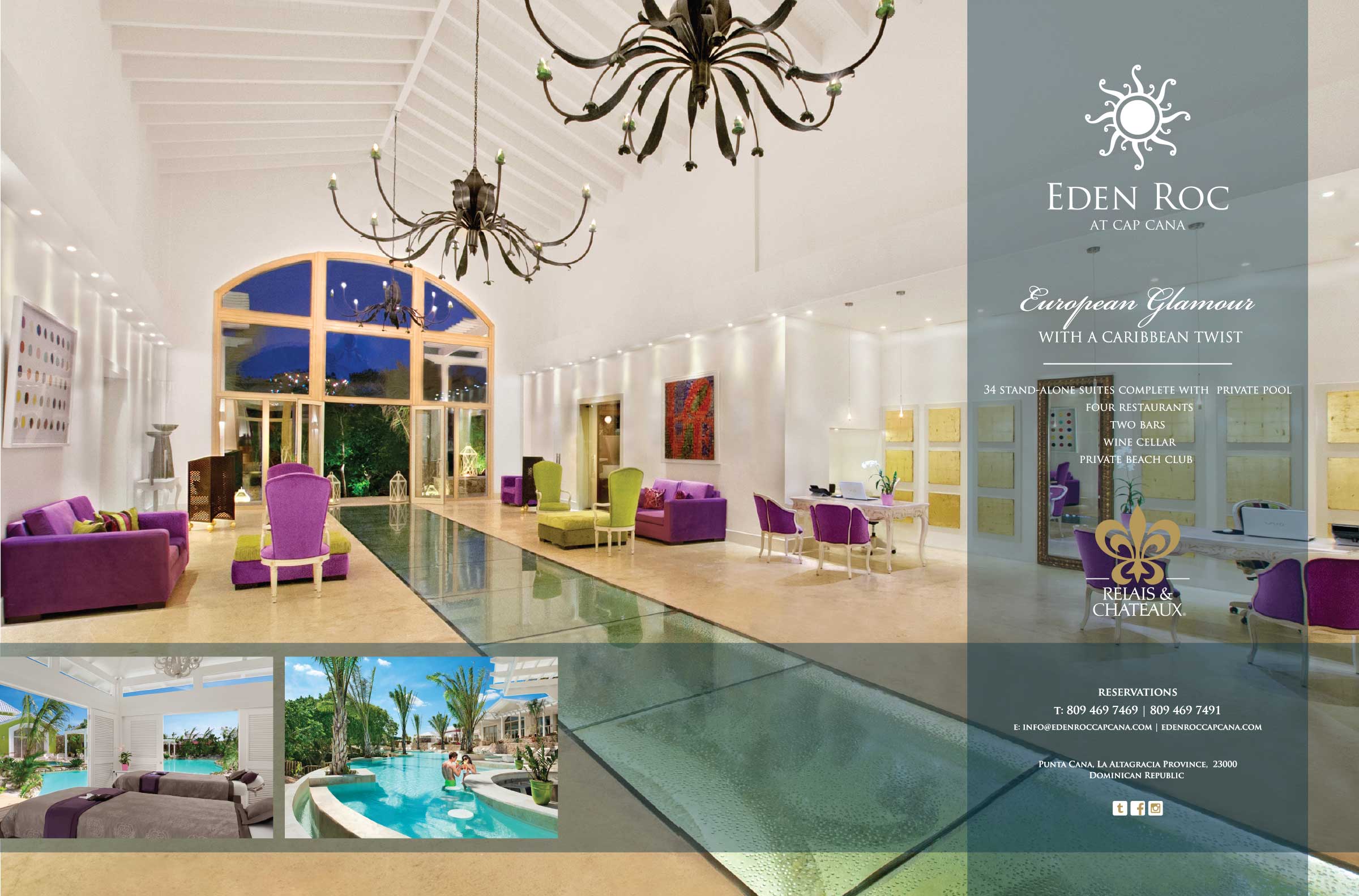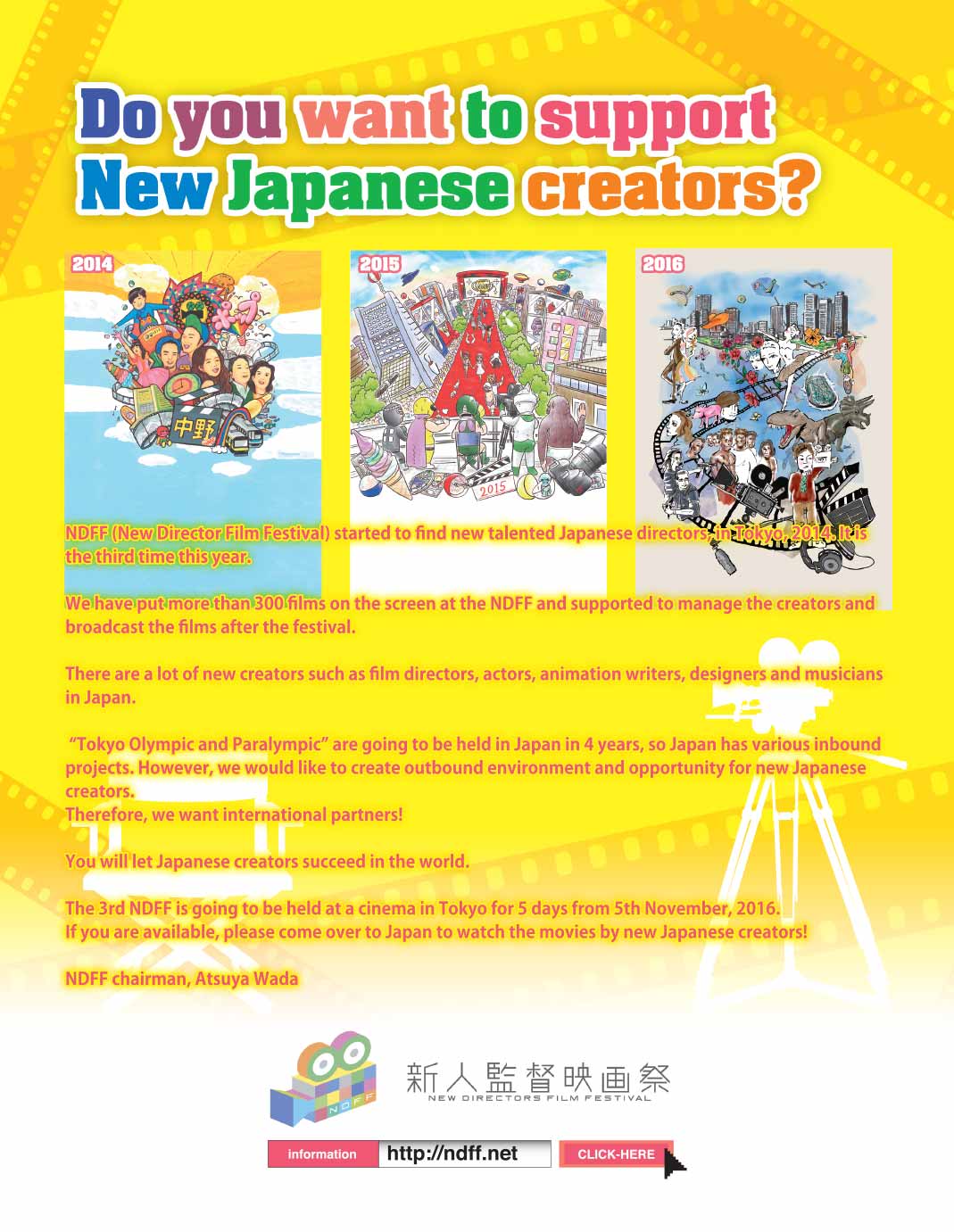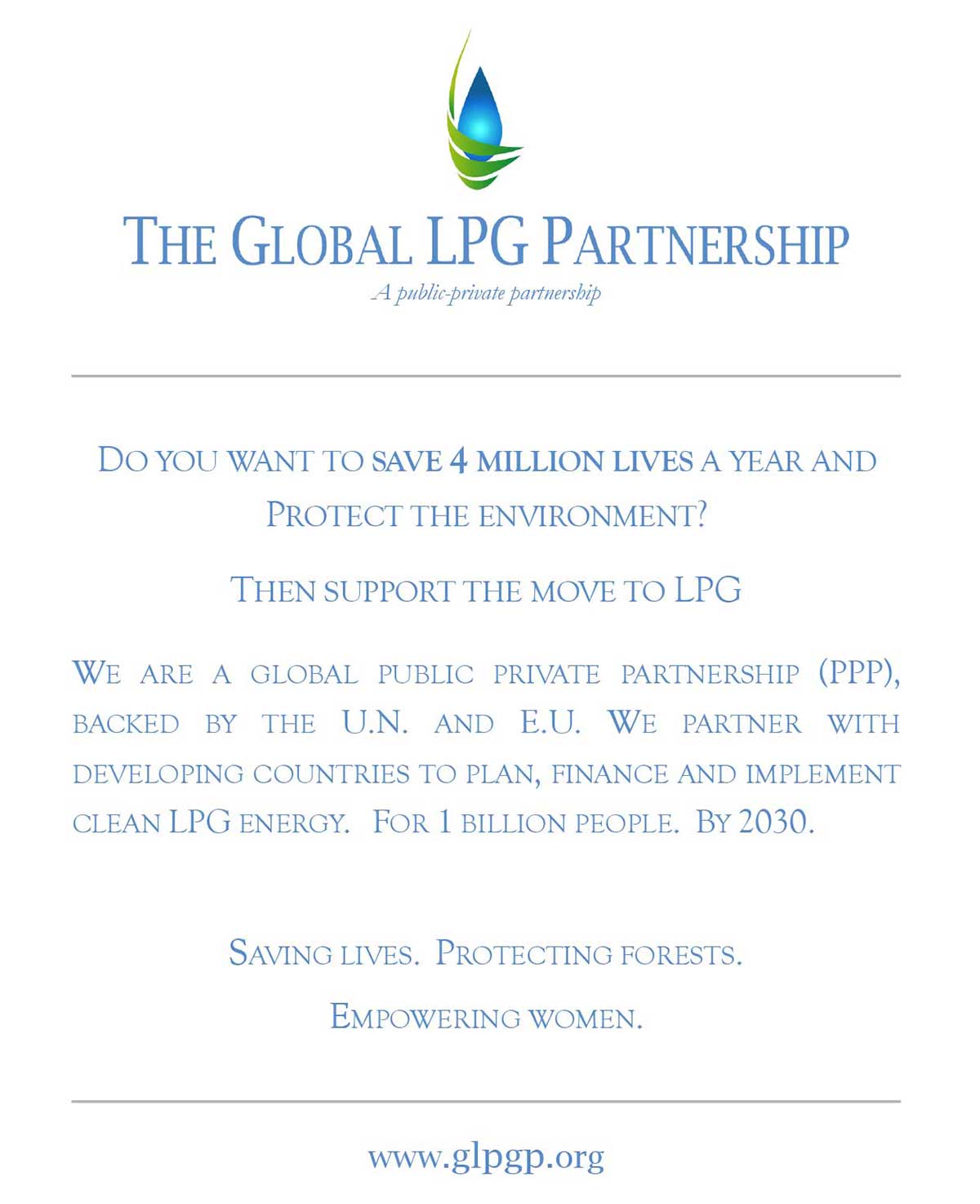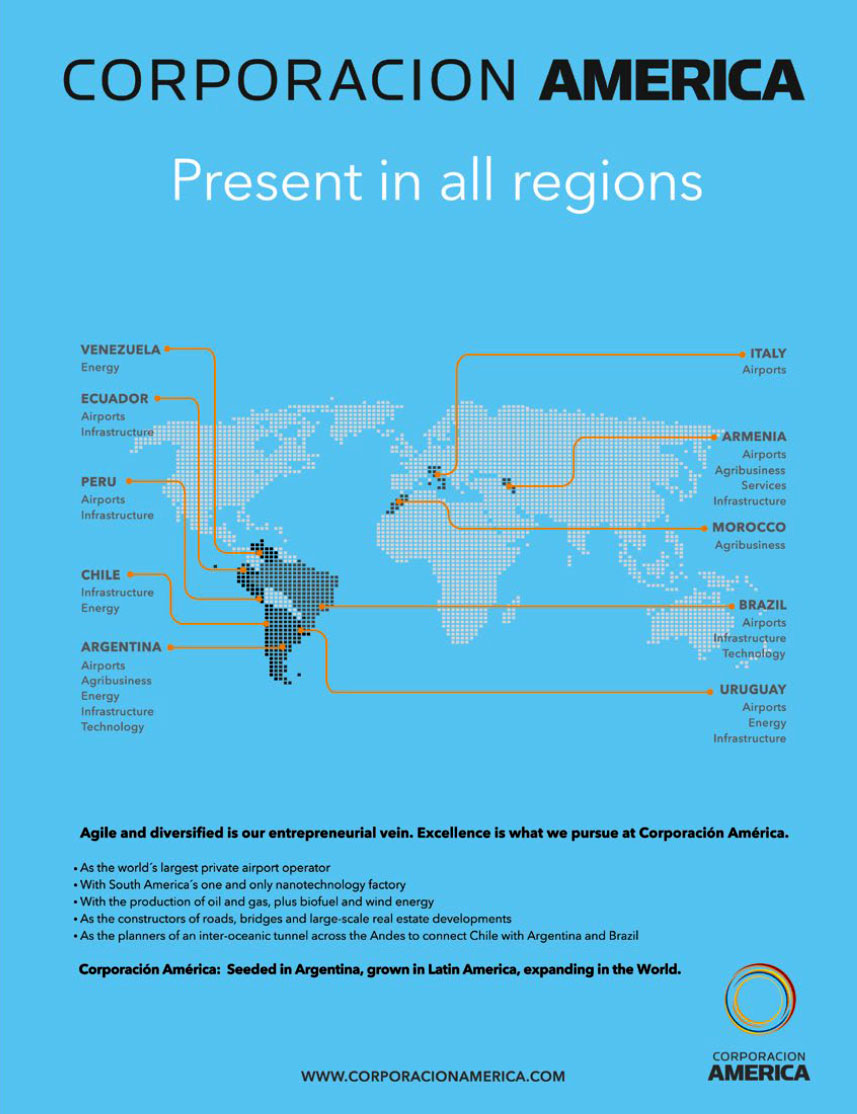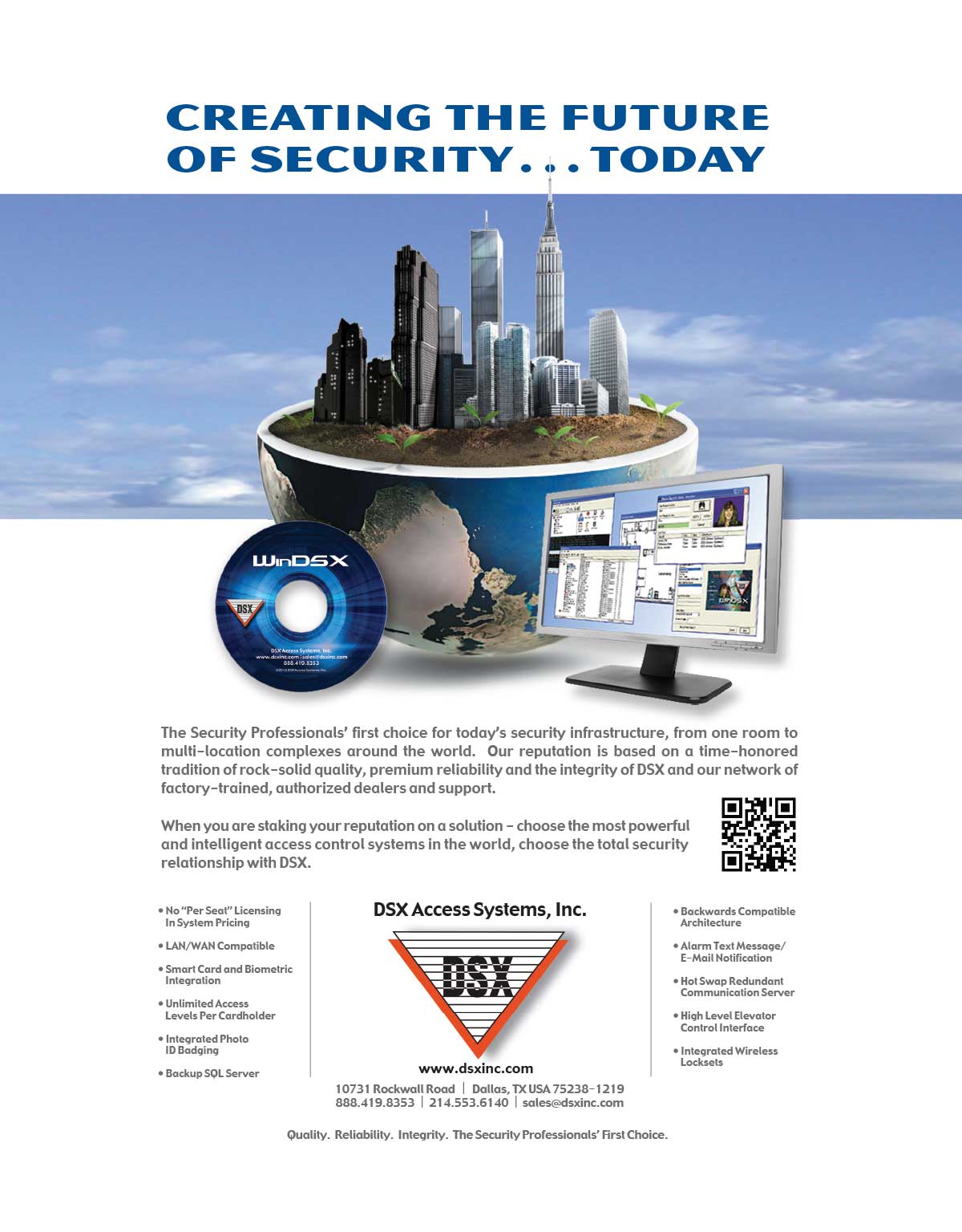G20 Executive Talk Series
September 2016
Branded Story / Eneco Holdings
What is Emulsion Fuel?
Fuel for the New Generation
“Fossil fuel” is drying up and “Global warming” could be solved in the future.
It’s no exaggeration to say that the economy and the life of the people in developed countries depends heavily on fossil fuels, especially such as oil. Fossil fuel is a limited resource which has been made for a long time but, is going to dry up in less than 50 years. However, the consumption has been increasing each year and the consumption in developing countries is also growing rapidly in order to build up increasing economies. The risk of fuel drying up is a serious issue in the world. Therefore, people should pay more attention to the emulsion fuel called “Water down fuel”. This is emulsion fuel mixed with water and oil such as heavy oil, coal oil or light oil.
Contents

Lead Feature
30 / The Globalization of Poverty:
The Abundance Intelligence Response
By Dr. Scott T. Massey
Features
42 / Combatting Global Climate Change
By Dr Werner Brandt
44 / Moving the Global Climate and Sustainability Agenda Forward Through G20
By Peder Holk Nielsen
54 / Unlocking SME Potential for Inclusive Economic Growth
By Dr. Tunc Uyanik
56 / The New Dimensions for the Great Silk Road
By Dr Oleg Preksin
70 / Russia and China Join Forces to Develop Green Energy
By Alexey Lossan
74 / Visa-Free Travel is Key to Tourism Growth
By Dr Mario Hardy
76 / Ushering in a New Era of Global Progress and Prosperity through Trade
By Andrew N. Liveris
78 / More Doing, Less Talking
By Kimball Chen
86 / Innovation as a Sustainable Growth Driver
By Viktor F. Vekselberg
90 / Leaving Nothing to the Imagination
By John W.H. Denton
92 / Financing Global Trade: The Most Important Branch of Finance You’ve Never Heard of
By Alexander R. Malaket
94 / Infrastructure: The Road to Global Prosperity
By Jean-Sébastien Jacques
98 / Energy’s Part in the Global Path to Prosperity
By Chad Holliday
100 / Fighting Ebola: Russia Offers a Ground-breaking Solution
By Tatiana Monaghan
104 / Coal Helping to Deliver the Four I’s of China’s G20 Presidency
By Benjamin Spartan
108 / China Chooses the Fast Track
By Niels B. Christiansen
112 / Brexit means Brexit
By Chris Southworth
114 / Saving Doha, Part II: Plurilateral Sectoral Tariff Initiatives
By Jamal Malaikah
Special Editorial Feature
Branded Stories
Advertisers Index

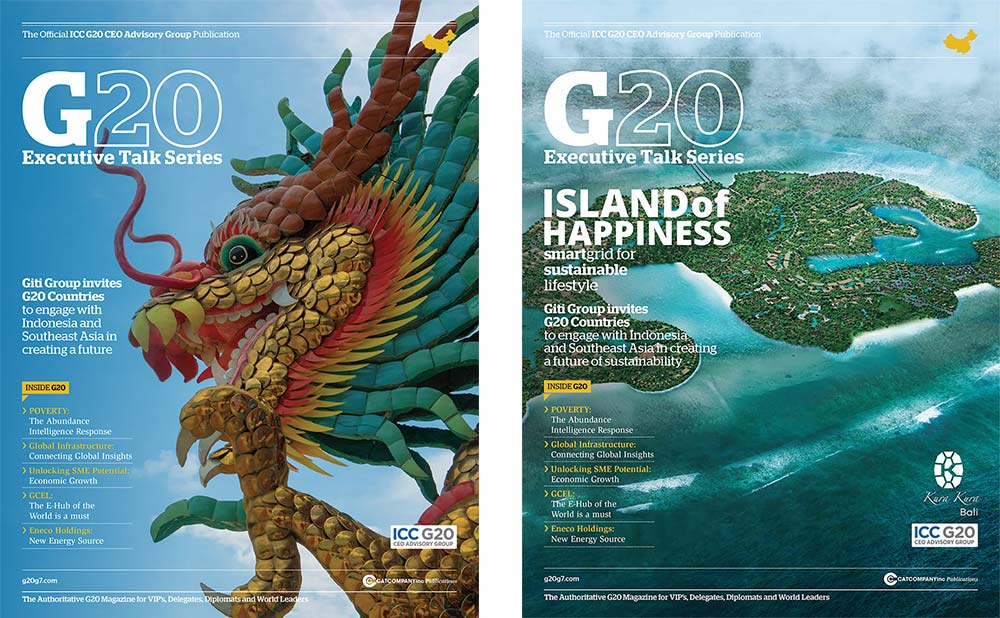
Publisher:
Chris Atkins
Editor-in-Chief:
Ana C. Rold
Creative Director:
Christian Gilliam
christian@cgcreate.co.uk
T: (+44) 7951 722265
Welcome Notes:
Page 12
Xi Jinping
President of The People’s Republic of China
Page 18
John Danilovich
ICC Secretary General
Page 22
Jiang Zengwei
Chair of B20 China and Chairman of China Council for the Promotion of International Trade
Publishing Firm:
The CAT Company, Inc.
CEO & Founder:
Chris Atkins
President-Inernational:
Mike Nyborg
President of EMEA:
Tyrone Eastman
Sales Executives:
Ray Baker
Guy Furl
James Regis
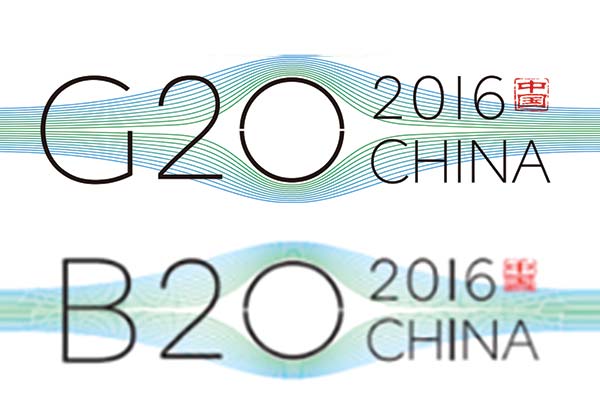
G20 Executive Talk Series
September 2016
GCEL
Co-authored by: Dr. Surin Pitsuwan, Minister of Foreign Affairs, Thailand (1997-2001), Secretary General, ASEAN (2008-2012)
Captain Samuel Salloum, Co-Chairman, Global Coalition for Efficient Logistics (GCEL)
The E-Hub of the World
is a Must
TODAY WE LIVE IN THE 21ST CENTURY TECHNOLOGY ERA. THE BIG QUESTION WE SHOULD BE ASKING IS: WHAT CAN TECHNOLOGY DO TODAY TO HELP REBUILD OUR GLOBAL ECONOMY?
“Necessity is the mother of invention – when the need for something becomes imperative, you are forced to find ways of getting or achieving it”.
Oxford English Dictionary
For nearly a decade, despite all available monetary, fiscal, and trade policies being exercised, the global economy steadfastly remains in a sub- optimal condition. In an interconnected world we all need to find a new inventive way of building a sustainable foundation for the next generation to take on and build the kind of future that we aspire for them – and we need to be inventive given the virtually insurmountable challenges that abound! However, I remain optimistic and hopeful that the ingenuity of man will prevail, for in the midst of the despair, a glimmer of hope is breaking through the dark economic clouds, a digital ray of sunshine that provides the promise of a brighter future for the global economy.
G20 Executive Talk Series
September 2016
Welcome

Xi Jinping
President of The People’s Republic of China
The G20 Summit mechanism was set up at the height of the international financial crisis in 2008, demonstrating G20 members’ determination to put the global economy back on its feet. The G20 thus became the premier forum for international economic cooperation. Looking back, I believe that the most valuable thing this process has created is the close partnership we have forged that has enabled us to jointly tide over a difficult time. It proves that in a world of deepening economic globalization, cooperation is the sure way for countries to meet challenges and achieve common development.
G20 Executive Talk Series
September 2016
GCEL
Establishing the Foundation for a Global Digital Economy Platform
It is time to get inventive! There is no lack of good policies that are recommended by global policy leaders but the ones they need to focus on are those that have the greatest global impact and that are implementable. To turn policies into, implementable policies they need to adhere to a set of criteria called an Implementable Policy Formula (IPF). The IPF should bring together all stakeholders of the global economy – government, service providers, and voices of those affected at the ground level – all working together, capitalizing on what each sector does best within their capabilities and jurisdictions.
G20 Executive Talk Series
September 2016
Welcome
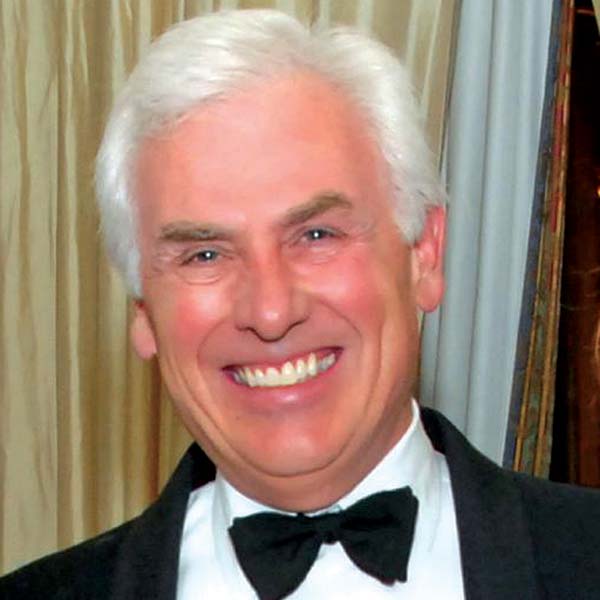
John Danilovich
ICC Secretary General
As the world business organization – with a worldwide network reaching over 6 million companies, chambers of commerce and business associations in more than 130 countries – the International Chamber of Commerce (ICC) is committed to ensuring that the voice of business is heard and that business interests are considered by policymakers at the highest levels. In this context, the G20 policy agenda has been a natural focal point for ICC to ensure that the direction set by Heads of Government is aligned with core business goals of open trade and investment, economic growth and job creation.
G20 Executive Talk Series
September 2016
Branded Story / Astana Expo 2017
Global Energy Future to be discussed at Astana EXPO-2017
The development of mankind cannot be imagined without the use of energy. Its major sources are still oil, coal and gas, which have a negative impact on the environment and human health.
According to the IEA, in almost 1.5 century, the CO2 concentration in the atmosphere has gone up by almost 40%. At the same time the world’s energy demand and production are growing at a record pace. Not only does the current situation give rise to concern, but it also calls for an active engagement of the international community in finding alternative solutions, including increasing investment in renewable energy.
G20 Executive Talk Series
September 2016
Welcome
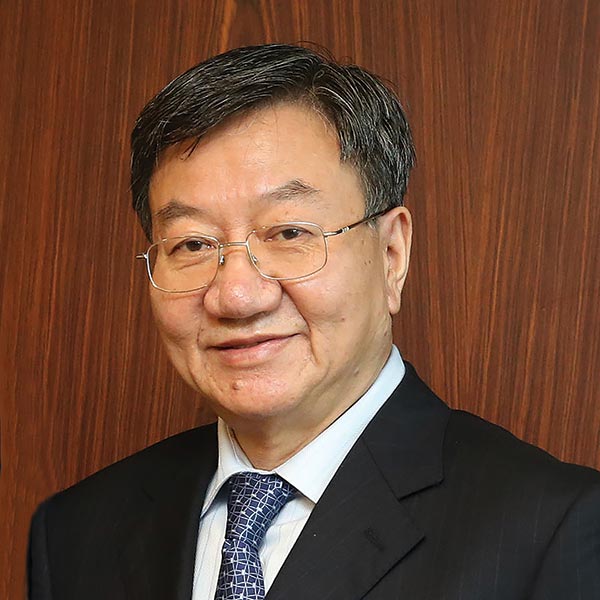
Jiang Zengwei
Chair of B20 China and Chairman of China Council for the Promotion of International Trade
As chair of the B20 China, I extend a very warm welcome to leaders from the international business community, international organizations, consultancies, experts and scholars from all over the world. China is proud to be the host of the 2016 G20 and B20.
At present, the world economy is undergoing fundamental readjustment and the road to overall recovery faces many hardships and setbacks. Achieving strong, sustainable and balanced development in the global economy still has a long way to go. At this critical moment, exchanges and consultations among business communities across the world are particularly necessary to develop practical and sustainable solutions to support global development.
G20 Executive Talk Series
September 2016
Branded Story / G20 Business
Authored by: Cherie Nursalim and David Nellor
Trade and Investment:
A G20 Opportunity
Getting trade and investment right matters for global growth – the G20 is best placed to accomplish that outcome. Merchandise trade alone still accounts for about 30 percent of global GDP even if the pace of growth has slowed.
Global macroeconomic issues, international systemic financial issues, as well as trade and investment are the core of the G20’s business. Yet, trade and investment is the G20’s Cinderella in the company of economic and financial policy even though it is just as critical for global growth prospects.
G20 Executive Talk Series
September 2016
Branded Story / GITI
EXECUTIVE INTERVIEW
ALIGNING
BUSINESS
WITH
SUSTAINABLE DEVELOPMENT
LET ME START BY SAYING THAT WE WELCOME G20 RECOGNITION THAT GROWTH IS MORE THAN A SINGLE GDP NUMBER. THE G20 TALKS ARE NOT JUST ABOUT ACHIEVING HIGHER GROWTH BUT ALSO ABOUT “STRONG, BALANCED AND SUSTAINABLE GROWTH”.
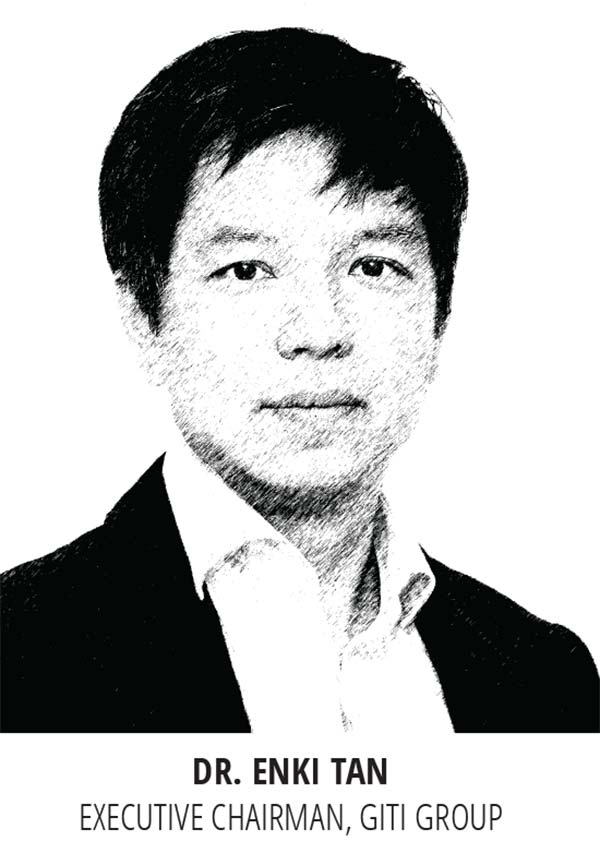
This phrase of “strong, sustainable, and balanced growth” resonates with our corporate philosophy that looks to bring value to all stakeholders — our consumers, workers, and investors because only by that philosophy can we deliver sustainable benefits to our markets and the communities in which we operate.
More broadly speaking, I view the United Nations Sustainable Development Goals (SDGs) as giving focus to three challenges that fall on our communities and the world more generally. These challenges are ecological, economic, and social which is about the shared values around peace, stability and mutual respect.
G20 Executive Talk Series
September 2016
Lead Feature / Poverty
Authored by: Dr. Scott T. Massey
The Globalization of Poverty
From Davos, to the Vatican; from China, to Washington, to the capitals of Europe, and across the disruptions of the Middle East and developing economies, “income inequality” has become a preeminent concern of our time.
The emergence of this issue comes at an inflection point in the early maturity of the globalization-IT revolution that has already changed the world dramatically–and is about to change the world even more dramatically and rapidly.
The driving forces of change today are by now easily named, if not yet easily or fully understood. The rapid spread of mobile technologies, combined with the globalization of capital markets and industries, global demographic shifts across generations and cultures, and the 24/7 pervasive knowledge base assembled through the Internet and Big Data–these four converging developments are continuing to undermine traditional political and social orders and to create unprecedented social and economic conditions. The scope and speed of change from the four forces is just beginning: this is the tip of the iceberg, and a warning to all Titanics at sea.
G20 Executive Talk Series
September 2016
Branded Story / Caterpillar
Authored by: Neil Hare, President and CEO of Global Visions Communication
Caterpillar introduces “The Age of Smart Iron”
As the digital transformation of the world continues at a rapid pace, the construction, mining, energy and transport sectors are proving no exception to the vast opportunities technology has to offer. Caterpillar, an industry leader in the transformative technology revolution, recently introduced “The Age of Smart Iron” at the baud 2016 trade show in Munich, Germany.
G20 Executive Talk Series
September 2016
World Chambers Congress / Innovation
World Chambers Congress:
Fostering opportunities, cultivating innovation
The World Chambers Congress is the largest, most influential forum of its kind assembling more than 1,000 business and chamber leaders from across the globe. Now in its tenth edition, this event has become the premier venue for sharing best practices, developing networks and discovering new areas of innovation.
Organized by the International Chamber of Commerce (ICC) World Chambers Federation (WCF), the Congress is held biennially and takes place in a different region of the world each time. The next edition is set to be held in Sydney, Australia on 19-21 September 2017 and co-organized by the Sydney Business Chamber (SBC). This will be the first time the prestigious event will be hosted in Australia and will allow the island nation to showcase its vast business incentives.
G20 Executive Talk Series
September 2016
Climate Change
Authored by: Dr. Werner Brandt
Combatting Global
Climate Change
In April 2016, around 170 states officially signed the Paris Agreement in New York. Successful implementation of the agreement will rely – to a great extent – on the development of market mechanisms which have the capacity to significantly advance emission trading systems. It is now up to the G20 to move forward in the realization and implementation of the Agreement.
In order to reach the Paris Agreement, it was necessary to change the rules of the game. The new agreement does not focus on the common global goal, which was previously broken up and divided between parties and included clear reporting, verification and compliance mechanisms. Instead, states now present national contributions under the UN Framework Convention on Climate Change, measured against the global “well under 2 Degrees” target. However, based on national contributions received so far, it is predicted that we are heading towards a three degree increase. In the absence of appropriate international mechanisms which ensure mitigation efforts are implemented fairly, singular efforts will be rendered redundant.
G20 Executive Talk Series
September 2016
Sustainability Agenda
Authored by: Peder Holk Nielsen
Moving the Global Climate and Sustainability Agenda Forward Through G20
As China assumed the G20 Presidency at the end of 2015, it did so shortly after an unprecedented set of international agreements on Climate Change (COP21), Sustainable Development Goals (SDGs) and Financing for Development (FfD) were reached.
Looking ahead, alongside finance and trade issues, all countries will increasingly look to underpin their economies whilst considering environmental, climate and development.
China has first-hand experience of this dynamic. In less than 30 years Chinese economic growth has improved the well-being of tens of millions of its citizens and transformed global trade and production. It is now driving economic reforms, with sustainable development key to its future success. It has already advanced a number of important strategies and pledged to reduce carbon emissions.
G20 Executive Talk Series
September 2016
Branded Story / Interface
Authored by: Erin Meezan, vice president of sustainability for Interface, Inc.
From Negative to Positive:
The New Path of Sustainable Business
Interface relies on optimism to drive positive business with positive impacts.
Twenty-two years ago, an unlikely chain of events was set off in an unlikely place – in the heart of an ‘avowed capitalist’ – an entrepreneur who was, at the time, 60 years old and at the top of his career as the founder and CEO of Interface, a billion dollar commercial carpet tile company based in Atlanta. Today, that company finds itself on the brink of victory – poised to celebrate a key milestone in a journey to eliminate the company’s environmental footprint by 2020. And yet, ever restless in its quest to create a lasting positive impact on the world, the company has proposed a new mission to address the biggest challenge facing humanity: to reverse climate change. Erin Meezan has been at the helm of sustainability for the company for 7 years.
G20 Executive Talk Series
September 2016
Human Bionics
Authored by: Dr Robyn Stokes, Australian Business and Marketing Strategist
Human Bionics Interface:
Australia’s G20 Inspired Alliance Accelerating New Global Partnerships
Since the first Innovation 20 was staged in Brisbane, Australia in 2014, unique possibilities have continued to unfold for Australia’s leaders and global collaborators in the field of human bionics.

One of the rapid high growth industries of the 21st century (with a combined global bionics and artificial organs market of USD 38.75 billion projected by 2020), the new science of human bionics emerged with the first successful commercialisation of a neuromodulation device, the Australian-invented multi-channel cochlear implant (bionic ear). This device has transformed the lives of people the world over and other bionic devices are now fast emerging to treat a range of other sensory and previously untreated medical conditions.
G20 Executive Talk Series
September 2016
SME Potential
Authored by: Dr. Tunc Uyanik
Unlocking SME Potential for Inclusive Economic Growth
In September 2016, the G20 Leaders meet in Hangzhou, China, at a time of increasing volatility in global markets and political uncertainty. Across G20 economies and beyond, there is a pressing need to unlock growth, investment and jobs. Most of all, there is a strong call for inclusive economic growth. Unlocking small- and medium-sized enterprises (SMEs)’ potential remains one of the best opportunities to achieve all of that.
Since September 2015, when the G20 leaders welcomed the World SME Forum (WSF) as the international organization which amplifies the voice of SMEs globally, we have been in intense dialogue with partners around the world to identify the most pressing priorities of the SME community. The feedback we are getting is that, in 2016, traditional challenges to SME growth have been intensifying: they include constraints in accessing markets, finance, managerial and entrepreneurial skills.
G20 Executive Talk Series
September 2016
The Silk Road
Authored by: Dr Oleg Preksin
The New Dimensions for the Great Silk Road
All of Eurasia should become the territory of accelerated growth and sustainable development could be secured by the rational combination and prudent use of its enormous natural resources, production assets, scientific and technical potential, financial and human capital from East and West, North and South.
The almost two-year-old commitment of global leaders “to lift the G20’s GDP by at least an additional two percent by 2018” (G20 Leaders’ Communique. Brisbane Summit, 15-16 November 2014), even backed by the 2016 Summit priority “to build an innovative, invigorated, interconnected and inclusive global economy and explore new ways to drive development and structural reform” (message from President Xi Jinping on 2016 G20 Summit in China), is becoming difficult to perform. “In an era of peril and many challenges…times of turmoil” (UN Secretary-General Ban Ki-moon’s Remarks at the St.Petersburg International Economic Forum, 16 July 2016), divergent economic development and exhaustion of the old sources of growth, ongoing trends towards fragmentation of foreign trade and investment market, geopolitical tensions and uncertainty, the implementation of the above commitment requires a proactive search for new drivers of global growth and integrity. One such driver is the Chinese One Belt –One Road (OBOR) initiative, which has met with great attention and broad support almost everywhere.
G20 Executive Talk Series
September 2016
Branded Story / Eden Roc at Cap Cana
European Inspiration:
Perfected in the Caribbean
Located in the exclusive private community of Cap Cana at the eastern tip of the Dominican Republic, Eden Roc at Cap Cana, the only Relais & Châteaux hotel in the island, consists of 34 freestanding suites with private pools and offers amenities such as a full service spa, a Jack Nicklaus Signature Golf Course located nearby, private Beach Club, Koko Kids Club, four diverse culinary selections, 753 square feet of meeting space at Corallina Conference Room and various multi-purpose spaces ideal for destination weddings and corporate functions.
G20 Executive Talk Series
September 2016
Branded Story / AERT Moisture Shield
The Next Generation in Decking
MoistureShield Composite Decking has a sustainability advantage that most other manufacturers do not: more than 95% recycled content.
While many composite lumber manufacturers are focused simply on creating a beautiful backyard, Advanced Environmental Recycling Technologies (A.E.R.T.), Inc. has taken this beauty a step further with its environmentally friendly composite decking, MoistureShield. MoistureShield composite deck boards are made with more than 95% recycled content and not only create a beautiful backyard, they keep the environment beautiful by conserving resources and helping to prevent discarded plastics from ending up in landfills.
G20 Executive Talk Series
September 2016
Branded Story / Austin Air
Indoor Air Quality:
A Global Concern
Outdoor air pollution is often in the spotlight while indoor air quality is rarely on our radar; at Austin Air we worry about it so you don’t have to.
It is well-known that air pollution is a serious threat to the environment. The quality of ambient (outdoor) air has been diminishing consistently since the Industrial Revolution brought on a colossal influx of fossil fuel burning. The shift away from agrarian economies was soon followed by the advent of motor vehicles and they’ve been adding to the assault on the atmosphere ever since. We may sometimes feel overloaded by these facts – specifically in
the context of climate change – but it’s too serious to ignore. Crop yields have declined in multiple regions since 1980 due to smog, black carbon, and ground-level ozone. This is akin to a nuclear winter, when the air is too thick for sufficient light to reach plants. This stunts agricultural output which is a tangible threat to food security.
G20 Executive Talk Series
September 2016
Green Energy
Authored by: Alexey Lossan
Russia and China Join Forces to Develop Green Energy
Despite the fact that Russia is one of the world’s largest exporters of oil and gas, in recent years the country has actively been developing alternative energy. Experts say that China, which is interested in inexpensive energy supplies from Russia’s Far East, is giving Russia a hand.
In July 2016 the new BRICS Development Bank, which was created on the initiative of Russia, China, Brazil, India and South Africa as an alternative to the International Monetary Fund, issued its first “green bonds.” The total value of the bonds was three billion yuans ($448.5 million), and the money received will go towards the realization of ecological projects, including alternative energy. This is not the only example of cooperation between Russia and China in this field. Chinese companies are increasingly investing in the construction of Russian solar and wind power stations.
G20 Executive Talk Series
September 2016
Inclusive Growth
Authored by: Victor K Fung
Physical and Digital Connections:
Accelerating Inclusive Growth and Prosperity in Asia
Another Asian miracle is in the making, which will build on the region’s economic links, by creating both physical connectivity and digital connectivity within Asia and between the region and the rest of the world.
Much has been written about how a fortunate combination of open economic policies and access to international markets enabled global supply chains to take root in Asia, delivering jobs, growth and development. These economic links helped to create the Asian economic miracle that has lifted much of the region out of poverty, cemented its place in global production, and given rise to the Asian middle class that will be measured in the billions. Today, global brands and retailers are actively preparing for this wave of new consumption: whether it is Amazon in India or Macy’s in China, retailers recognize that Asia is the world’s next consumer power.
G20 Executive Talk Series
September 2016
Branded Story / PATA
Authored by: Dr Mario Hardy
Visa-Free Travel is Key to Tourism Growth
With more than 1.2 billion international trips made each year, safety is the number one priority for the travel and tourism industry and one that can only be addressed through the strong and concerted efforts of the world’s governments and the international community.
As the CEO of the Pacific Asia Travel Association (PATA), I regularly visit our many members, partners and industry colleagues around the globe to discuss the various issues and challenges facing the travel and tourism industry. Besides the subjects of human capital development and sustainability, concerns of safety and security are always the primary topic of discussion and one that is often discussed between our partners at the Global Travel Association Coalition* (GTAC). With more than 1.2 billion international trips made each year, safety is the number one priority for the travel and tourism industry and one that can only be addressed through the strong and concerted efforts of the world’s governments and the international community.
G20 Executive Talk Series
September 2016
Global Trade
Authored by: Andrew N. Liveris
Ushering in a New Era of Global Progress and Prosperity through Trade
News around the world this year has been dominated
by familiar acronyms: TPP, T-TIP, RCEP and more.
These letters have been scrolling across news tickers from New York to New Delhi in a banner year for free trade agreements (FTAs). The largest trade deal in history, the Trans-Pacific Partnership (TPP), was signed in February, and negotiations are progressing on another enormous FTA, the Transatlantic Trade and Investment Partnership (T-TIP). Together, those two agreements alone would cover over 60 percent of the global economy.
G20 Executive Talk Series
September 2016
Health and Development
Authored by: Kimball Chen
More Doing, Less Talking
It is better to ask what is a sufficient solution for a sufficient period of time—and then do that.
Those who want to do good often spend too much time on analysis and disagreement, hoping for perfect solutions to emerge out of uncertainty. The world must avoid talking without doing. Perhaps it is better to ask what is a sufficient solution for a sufficient period of time—and then do that. Clean cooking is a perfect illustration of a big problem whose solution is inhibited by too much debate, even though the way forward is now clear.
G20 Executive Talk Series
September 2016
South Pacific
Authored by: Edward Mortimer
Labor Market Integration in the South Pacific:
Lessons from the Australian—New Zealand Experience
Since 1973, Australia and New Zealand have rapidly opened their labor markets to citizens of either country under the Trans-Tasman Travel Arrangement.
Through the Pacific Islands Forum – the main multilateral organisation in the South Pacific – Australia, New Zealand and a number of less developed small island states (known as the Forum Island Countries) are approaching the final stages of negotiations on a comprehensive trade deal under the umbrella process established in 2001: the Pacific Agreement on Closer Economic Relations (PACER Plus). The deal aims to build on the existing agreements – chiefly the South Pacific Regional Trade and Economic Co-operation Agreement – that both Australia and New Zealand have with Forum Island States. The intent is to further reduce (in many instances without reciprocal obligations for the poorer countries) trade barriers on a wider range of goods and services.
G20 Executive Talk Series
September 2016
Internet Connectivity
Authored by: Fumbi Chima
E-Learning, E-Commerce and E-Health:
How Internet Connectivity Is Transforming Lives Across the Globe
The rise of Internet connectivity is transforming lives across the globe, with sweeping benefits for growth, jobs and prosperity more widespread by the day.
The rise of Internet connectivity is transforming lives across the globe, with sweeping benefits for growth, jobs and prosperity more widespread by the day. Over three billion people are now connected to the Internet, with numbers predicted to rise to over six billion by 2020, according to a recent State of Broadband report. This increase in Internet connectivity could add trillions of dollars to the global GDP, and open socio-economic doors around the world. Digital connectivity provides a slew of benefits, and a unique platform for innovation, creativity and problem solving. In the past 15 years, the Internet has transformed everything from the way we do business and learn to the way we provide and access healthcare.
G20 Executive Talk Series
September 2016
Global Development
Authored by: Viktor F. Vekselberg
Innovation as a Sustainable Growth Driver
Innovation covers all the aspects of G20-B20 activities.
Assuming the G20 presidency for 2016, China declared the desire to work together with the partners towards an innovative, invigorated, interconnected and inclusive world economy. Hence the theme of the G20 2016 Summit, where innovation comes first. According to the Chinese agenda “the G20 should forge new growth engines by promoting innovation-driven development, encouraging across-the-board innovation in science and technology, in development concepts, and in institutions and mechanisms, as well as in business models”. In other words, innovation covers all the aspects of G20-B20 activities.
G20 Executive Talk Series
September 2016
Branded Story / Ruma
Authored by: Gwyn Jones
Antibiotic Use in Livestock Farming
Antimicrobial resistance and the threat this poses to the future viability of antibiotics continues to be hotly debated. The main topic remains how to preserve the efficacy of current antibiotics for treating human bacterial infections and maintain their role in modern medicine, for example during cancer treatment and routine surgery, without jeopardising our food supplies or animal welfare.
The discovery of antibiotics has enabled us to fight bacterial infections. However, resistance is a naturally-occurring phenomenon that develops as bacteria defend themselves against attack, so any antibiotic use can lead to resistance. In fact, resistant bacteria that are millions of years old, pre-dating modern medicine, have been found in the ice caps.
G20 Executive Talk Series
September 2016
Global Trade
Authored by: John W.H. Denton
Leaving Nothing to the Imagination
When nations enthuse over a 45% tax on Chinese goods, economists roll their eyes. Adam Smith might have dismissed it as ‘one of those cases in which the imagination is baffled by the facts’.
There’s been little to unite left and right during the US Presidential campaign but trade agreements appear to be the first casualty when it comes to appeasing voters who are worried about next month’s pay-check. The fact that these same voters will struggle to afford more expensive goods can wait until after polling day. This kind of collective rear-guard action is a pattern we’ve seen time and time again when politicians know votes are at stake. And it’s not just America.
G20 Executive Talk Series
September 2016
Global Trade
Authored by: Alexander R. Malaket
Financing Global Trade:
The Most Important Branch of Finance You’ve Never Heard of
Trade remains, despite a challenging post-crisis environment, one of very few powerful commercial and policy levers that can influence conditions on a global scale, and it is now widely recognized outside a small group of practitioners who have known this for a very long time, that trade cannot take place without the critical enabling support of trade finance.
This esoteric branch of finance has long been the purview of international bank and is still in part enabled today by instruments and banking practices that date back hundreds of years if not longer. Trade finance by its broadest definition, which now includes fast-growing techniques in the financing of global supply chains, supports perhaps as much as 80% of global merchandise trade flows, currently worth in the range of $20 trillion annually. In addition to providing critical financing in support of cross-border commerce, trade finance (and increasingly, supply chain finance) offer a range of highly effective risk mitigation options, through financing structures, private sector, public sector and international institution sources, that are fundamentally important to enabling trade in and with the most challenging markets on the globe.
G20 Executive Talk Series
September 2016
Infrastructure Development
Authored by: Jean-Sébastien Jacques
Infrastructure:
The Road to Global Prosperity
China’s One Belt, One Road policy is the latest innovation in its remarkably successful economic development program, with infrastructure development at its core.
Xi Jinping’s vision for taking China’s infrastructure expertise abroad has multifaceted benefits: China’s domestic infrastructure expertise will support job creation at home, build demand for Chinese-made goods and services, grow and strengthen economies that create new markets for Chinese trade and build partnerships with a broad and strategic geography.
G20 Executive Talk Series
September 2016
Infrastructure Investment
Authored by: Robert Milliner
Global Infrastructure Hub:
Connecting Global Insights to Unlock Infrastructure Potential
There are many and varying estimates of the global infrastructure investment gap. However, they are all consistent in indicating that it is large and not closing on current policy settings.
In November 2014, G20 Leaders agreed a new initiative to lift quality public and private infrastructure investment (the ‘Global Infrastructure Initiative’), including the establishment of a Global Infrastructure Hub (‘Hub’) to be based in Sydney, Australia. The Hub was given a four-year mandate from the G20 to lower barriers to investment, increase the availability of investment-ready projects, help match potential investors with projects, and improve policy delivery.
G20 Executive Talk Series
September 2016
Sustainable Energy
Authored by: Chad Holliday
Energy’s Part in the Global Path to Prosperity
The explorer Marco Polo thought that Hangzhou was “the finest and most splendid city in the world”. For three hundred years before him, and for seven hundred years after, it has been one of China’s most prosperous cities.
This makes it an ideal setting for this year’s G20 and B20 summits, during which government and business leaders will discuss how best to achieve similar sustained growth throughout the world. One thing’s for sure: energy will be needed, and lots of it. After all, economic development goes hand-in-hand with an increase in energy consumption.
G20 Executive Talk Series
September 2016
Global Health
Authored by: Tatiana Mohaghan
Fighting Ebola:
Russia Offers a Ground-breaking Solution
Where there is an efficient public-private partnership, there is a solution to the world’s threats.
The world learned about the threat of Ebola in 2014 when the virus infected 28,616 people and killed 11,300, mostly in Guinea, Liberia and Sierra Leone. In addition to the massive human loss, the epidemic also jeopardized the macroeconomic stability as well as food security, human resources and private sector development in the Ebola-affected states. It also exposed numerous humanitarian problems.
G20 Executive Talk Series
September 2016
Energy Policy
Authored by: Benjamin Sporton
Coal Helping to Deliver the Four I’s of China’s G20 Presidency
Discussion on energy policy must balance the priorities of cost, security, environmental considerations, economic growth, poverty eradication and diplomatic relations.
The G20 was conceived as a forum for leaders from the major advanced and emerging economies to discuss and co-ordinate global economic policy. In recent years, however, this role has evolved and the organisation has now become one of the most prominent forums to address the broader challenges in global governance.
G20 Executive Talk Series
September 2016
Energy Policy
Authored by: Niels B. Christiansen
China Chooses the Fast Track
Energy efficiency coupled with district energy provides future-proof solutions.
DISTRICT ENERGY IS THE PERFECT INFRASTRUCTURE INVESTMENT FOR COUNTRIES WHICH HAVE RAPID URBANIZATION RATES.
With a can-do mindset, China is showing the world how the challenges of modern living can be turned into opportunities. Investments in energy efficiency infrastructure are one of the roads to success and a lever to reduce CO2 emissions and save money.
G20 Executive Talk Series
September 2016
Brexit
Authored by: Chris Southworth
Brexit means Brexit
Brexit means Brexit is what we are being told by UK officials. In reality, we don’t know what Brexit means other than the UK will be leaving the EU. What comes next is unknown.
From an international point of view, Brexit has come at an unwelcome time for the rest of the world and will have added more uncertainty and complexity at a time when G20 trade performance is weak and protectionis rhetoric is on the rise. G20 leaders have an ideal opportunity to rebalance the message and inject confidence into the economy.
G20 Executive Talk Series
September 2016
Doha
Authored by: Jamal Malaikah
Saving Doha, Part II:
Plurilateral Sectoral Tariff Initiatives
At a time where economic recovery remains weak and uneven and the DDA is stalled, the business community must actively engage to help restore conditions for sustainable economic development.
A year ago, in an article titled “Saving Doha: Focusing on Priority Issues”, I underlined the importance of the continued liberalization of trade for the business community at large and provided three ideas to revive the moribund Doha Development Agenda (DDA). A year later, I review the progress made and the merits of plurilateral sectoral tariff initiatives, an option to improve trade and deliver much-needed benefits in the short to medium term.
G20 Executive Talk Series
September 2016
Branded Story / Trans Maldivian Airways
The History of Trans Maldivian Airways
The Maldives has shown that travel to even the remotest and unspoilt archipelagos on the planet is attainable. The islands’ striking beauty, combined with luxury resorts, would not be as accessible as they are if it wasn’t for a handful of daring people. They turned their passion into a service benefiting visitors, resorts and Maldivians alike.
How it started
The Maldivians undertook voluntary work in order to build their own airport and in 1966 Male saw the first commercial landing.
The few adventurous travelers who came to the Maldives in the following years were limited to exploring the pristine islands close to Male. The natural and untouched beauty of the islands started to appeal an increasing number of inquisitive travelers, and the first resorts opened in 1972, all within reach of boat from Male.

September 2016
Share This Issue

